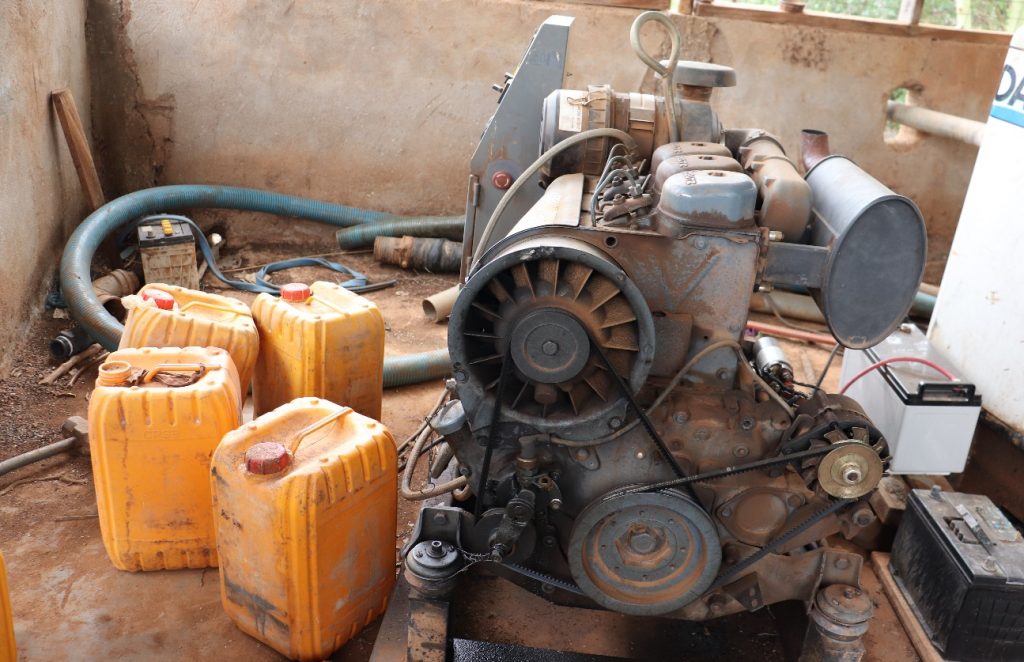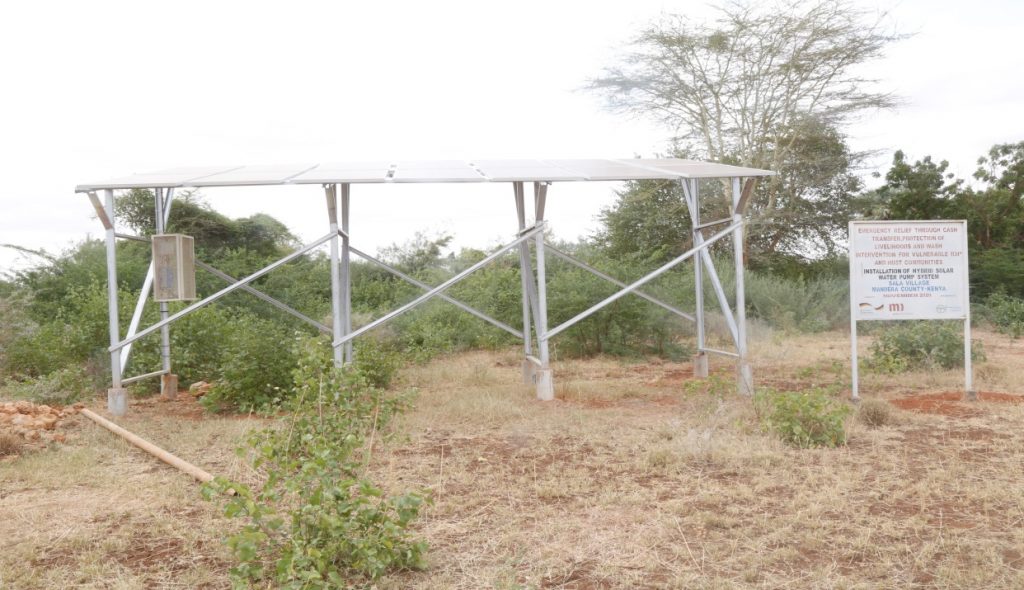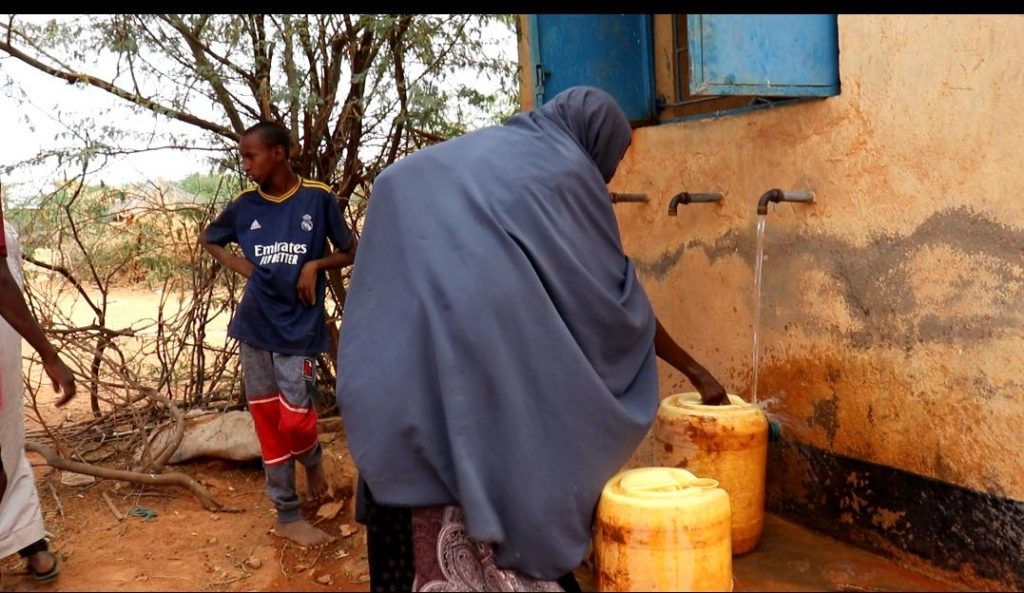Located in rural Mandera, 70 kilometres North of Mandera Town is the village of Sala. Overlooking it is river Dawa that flows smoothly and is about 1.5km from the village. However, accessing clean water for residents of this remote village has not been easy for many generations. The community relied on water supply from the shallow well pumped by a diesel generator which experienced frequent breakages and high maintenance and operation costs.
The diesel-powered generator pumped water from the shallow well located near the river to the water collection point in the village. The operational cost for the diesel pump was high and unsustainable. It required a constant supply of spare parts due to frequent breakages, diesel fueling and payment of high monthly operator’s fees. The cost of fueling the generator was USD 35 for an estimated 30 litres of diesel fuel per day. Coupled with frequent mechanical breakage constantly resulted in the community being forced to trek for 1.5 kilometres to fetch unsafe water from the rivers.

The old diesel-powered generator used to pump water from the river
Mama Fatuma, a resident of Sala recalls the challenges the community. experienced.
“….There were times when we would show up at the old livestock troughs to fetch water, only to be notified that the generator was not working and then we had no choice but to trek to the river to fetch water. Additionally, each household was charged USD10 per month to cover maintenance costs of the generator when it broke down….” recalls the grandmother of 3.
“Now, access to clean water has improved as I can collect treated water from the village water kiosk and it flows uninterrupted thanks to the newly installed hybrid solar water pumping system,’’ Reports a delighted Mama Fatuma.
Through a partnership with Medico International and funding from GFFO, NAPAD installed a hybrid solar water pumping system next to the shallow well near the river. The system pumps water into the village lessening the burden of over 450 housholds. These households now access affordable clean and adequate water for domestic and livestock use.
The solar-powered water system is easy to maintain and rarely breaks down, it is environmentally friendly and does not require a supply of expensive fuel. Most importantly, the area is endowed with many hours of sunshine ensuring that solar technology is a sustainable alternative to pump water into the village.

It has been almost a year since the installation of the hybrid solar water pumping system and Sala residents are still accessing water without disruption. Many households who used to line up at water collection points for hours are now able to access water without experiencing congestion at the water collection points.
Now that the solar water pumping is in use, the diesel consumption and engine maintenance costs have been reduced by three quarters. The engine operates only when the solar system has low voltage.
“…the use of the solar-powered water pumping system ensures minimal use of the diesel engine leading to low maintenance costs. We are now only charged USD4 per household as monthly levies compared to previous the USD10 ..,’’ said Abdi Mohamed, borehole operator.

Sala village residents collecting water from the village water kiosk
